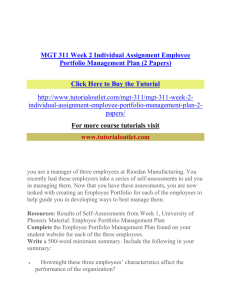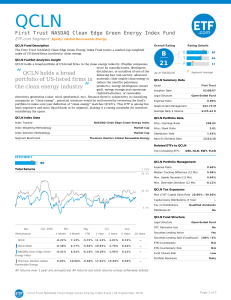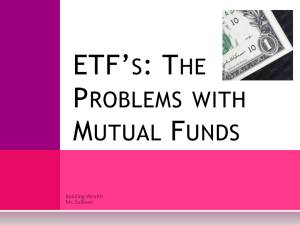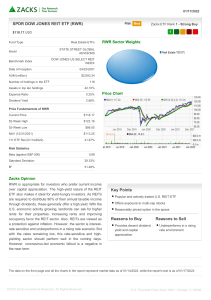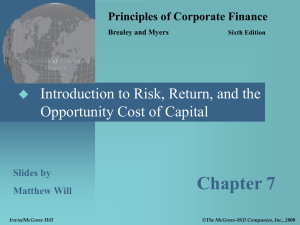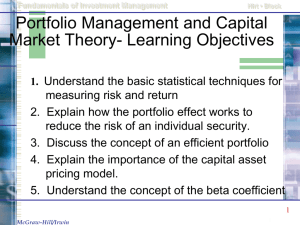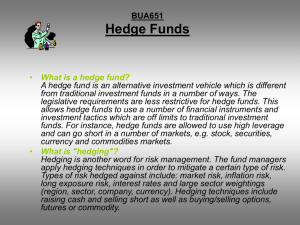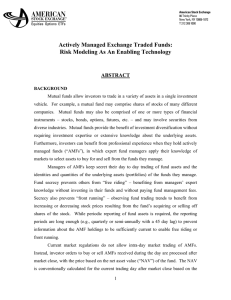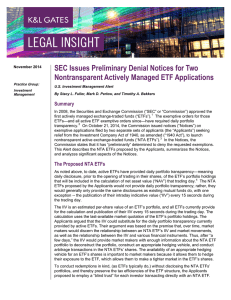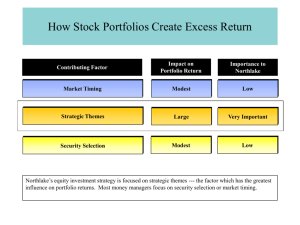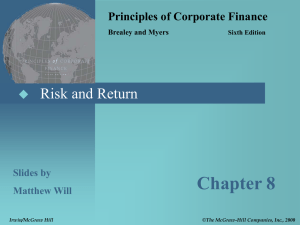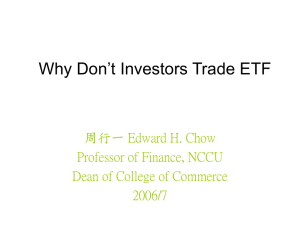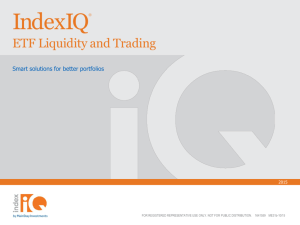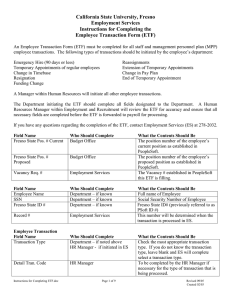special topics in finance - Advanced Portfolio Solutions
advertisement
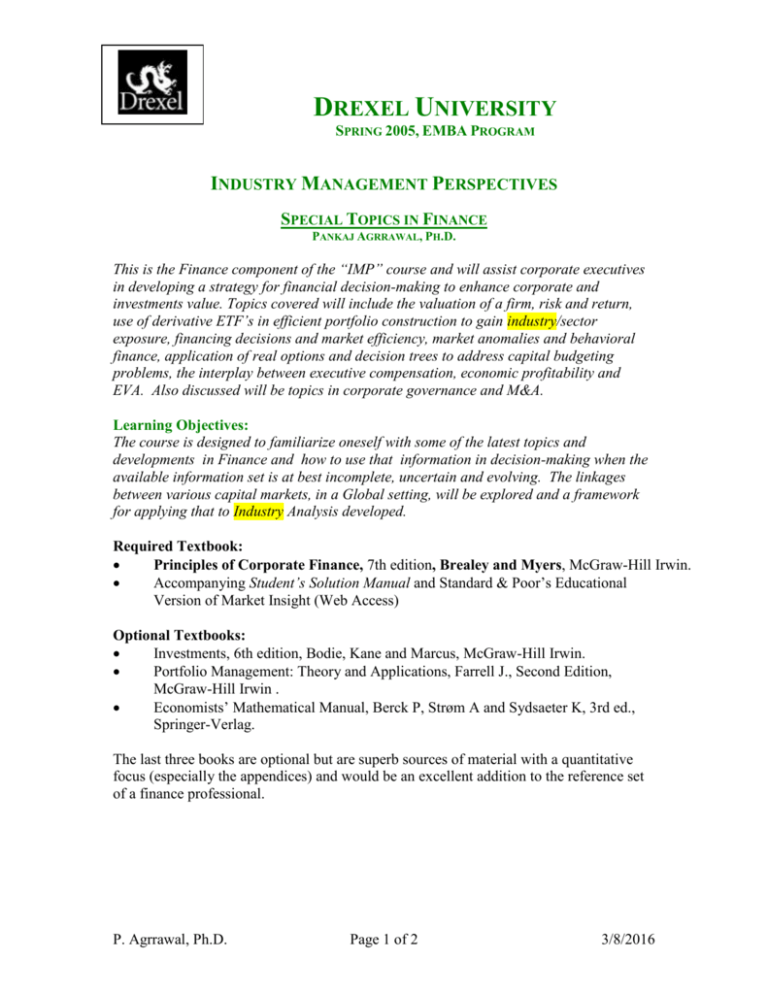
DREXEL UNIVERSITY SPRING 2005, EMBA PROGRAM INDUSTRY MANAGEMENT PERSPECTIVES SPECIAL TOPICS IN FINANCE PANKAJ AGRRAWAL, PH.D. This is the Finance component of the “IMP” course and will assist corporate executives in developing a strategy for financial decision-making to enhance corporate and investments value. Topics covered will include the valuation of a firm, risk and return, use of derivative ETF’s in efficient portfolio construction to gain industry/sector exposure, financing decisions and market efficiency, market anomalies and behavioral finance, application of real options and decision trees to address capital budgeting problems, the interplay between executive compensation, economic profitability and EVA. Also discussed will be topics in corporate governance and M&A. Learning Objectives: The course is designed to familiarize oneself with some of the latest topics and developments in Finance and how to use that information in decision-making when the available information set is at best incomplete, uncertain and evolving. The linkages between various capital markets, in a Global setting, will be explored and a framework for applying that to Industry Analysis developed. Required Textbook: Principles of Corporate Finance, 7th edition, Brealey and Myers, McGraw-Hill Irwin. Accompanying Student’s Solution Manual and Standard & Poor’s Educational Version of Market Insight (Web Access) Optional Textbooks: Investments, 6th edition, Bodie, Kane and Marcus, McGraw-Hill Irwin. Portfolio Management: Theory and Applications, Farrell J., Second Edition, McGraw-Hill Irwin . Economists’ Mathematical Manual, Berck P, Strøm A and Sydsaeter K, 3rd ed., Springer-Verlag. The last three books are optional but are superb sources of material with a quantitative focus (especially the appendices) and would be an excellent addition to the reference set of a finance professional. P. Agrrawal, Ph.D. Page 1 of 2 3/8/2016 Lecture Focus for Each Class Meeting (3 hours): Investment Decisions: Value Creation, Portfolio Risk, Return and ETF’s o Valuing companies: net present value, cost of capital, P/E ratio o Calculating portfolio risk and security betas o Markowitz diversification, the CAPM and APT o Phenomenon of industry, sector, style, country, asset specific ETF’s o Use of ETF’s to get global exposure and dampen portfolio volatility Financing decisions and Market Efficiency o Difference between financing and investment decisions o Three forms of efficient markets o Behavioral finance and market anomalies o Hedging industry and market risk: is there true alpha? Real Options, Compensation, Performance and EVA o Valuation of real options (Expansion / Abandonment, Decision Trees) o EVA, residual income and performance evaluation analysis o Economic profitability Mergers, Corporate Control and Governance o Merger and acquisition activity o Motives and mechanics of a merger o Estimating merger gains and costs o Acquisition battles and tactics o Special topics in corporate governance in the US Program Format and Length 32-hour program – full course 3 x 4 for Finance Component Please Note: “This course outline is tentative and may be changed if necessary. P. Agrrawal, Ph.D. Page 2 of 2 3/8/2016






